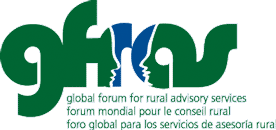Structure and design
New to the Policy Compendium? Discover the logic behind the design of the Compendium to help you find the information you need as easily and quickly as possible.
The Policy Compendium is designed to mirror key aspects of a policy life cycle, organised along the categories indicated below. While for the sake of structuring, resources are allocated to these categories, please note that policy processes are fluid, and each category is overlapping with, linked to, informed by, and informing all other categories. Thus short descriptions for each category are provided on the main page to better understand how knowledge products were categorised.
We strongly recommend that you start your browsing with the category "Introduction to RAS policies" if you are new to the topic of RAS policies.
-
Introduction to RAS policies: What are key terms and principles to understand RAS policies? What is the purpose and objective of policies related to RAS?
-
Advocacy: How can one be engaged in policy processes? How can policy be influenced? How do you need to communicate effectively?
-
Development: What methods exist to design new policies and/or adapt existing policies so they are connected to demand, political processes, and surrounding factors? How can actors be identified and integrated for participatory policymaking? How are goals, aims, expected outcomes, audiences and beneficiaries, and scope and level of policies defined? How much does policy development cost, how can it be financed?
-
Implementation: How are policies translated to practice? What forms of governance, accountability, and oversight mechanisms of RAS policies exist? What are budgets, processes, steps, TORs to implement policies?
-
National Policies: What are previous and current existing national policies on RAS or related to RAS?
-
Monitoring, Evaluation, and Learning: What feedback mechanisms exist, how are policies validated? How to monitor and evaluate direct and indirect impacts of RAS policies? What to do with MEL results?
In addition, you can find the category Experts, which provides you with a list of RAS policy experts that have registered with the GFRAS Roster of Experts.
Search the compendium
There are different options to find the knowledge product you are looking for:
-
Click on the GFRAS logo (top left corner of the page) to return to the starting page of the Policy Compendium containing the filter box and the policy cycle.
-
Browse the different categories and sub-categories by using the menu bar or click on the image the policy cycle.
-
Filter your results by using the filter box to the left of the page. This is a so called “and” search, meaning that the more keywords, categories, tabs, or fields you choose, the less results you will receive as the results will be narrowed down. You can
-
Search according to categories and subcategories
-
Filter according to the type of content (i.e. checklists, templates, conceptual papers, etc.)
-
Filter according to the type of document (i.e. presentations, briefs, or full reports, etc.)
-
Filter according to country
-
Search for tags: These are topics that cut across all of the categories and subcategories
-
Filter according to author or year of the document
-
Search for keywords.
-
-
Use the site map button to find a list of all documents available on the Policy Compendium, organised by categories and sub-categories.


Comments
tadalafil 20 mg Cialis tablets
free cialis http://cialisees.com/
cialis lowest price Cialis generico
acquistare cialis internet http://cialisees.com/